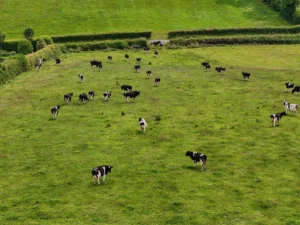
Cattle, greenhouse gases and the case for better methane metrics
Why the global warming potential of methane emissions from cattle production needs a closer look
In the latest episode of the World Without Cows podcast, hosts and filmmakers Michelle Michael and Brandon Whitworth are joined by Tara McCarthy, Alltech’s global vice president of ESG, to reflect on the impact of the World Without Cows documentary and explore how it’s catalyzing meaningful conversations around sustainability, food systems and the future of agriculture — both inside and outside the industry.
What unfolds is a candid, optimistic and energizing discussion about why this moment feels like a turning point — and how, as Tara says, “chaos provides a ladder.”
Subscribe and listen to the World Without Cows Podcast on Spotify and Apple Podcasts.
Reflecting on screenings of World Without Cows at international gatherings, Tara shares a consistent reaction from viewers: surprise, followed by relief — and then, action.
“People watch the film and say, ‘Why hasn’t this been done before?’,” she said. “Because so often the industry has been navigating a defensive position … and [they’re excited] to see something of this quality that has their back.”
The film she says, offers a rare moment of pride and power.
“It moves from, ‘Oh my word, why haven’t we done this already?’ to ‘What are we going to do next?’ And that’s the magic — how you translate an audience into an army,” Tara says.
What gives the documentary its impact, Tara believes, is its refusal to simplify.
“This doesn’t really draw a conclusion that agriculture is blameless or that cows make no impacts. We don’t even offer a clear path forward,” Michelle says.
So why does it give people confidence?
“Because it gives a balanced view,” Tara responds. “There are some uncomfortable truths shared in the documentary, and that shows you the industry you’re engaging with. No one has ever denied those truths — but they’ve always been attacked by extreme case studies.”
The film’s power, she continues, is in its honesty:
“It shows people that there’s a balanced conversation possible, rather than a binary right-and-wrong. And the industry is sophisticated enough to navigate that — it just hasn’t had permission to lean into it.”
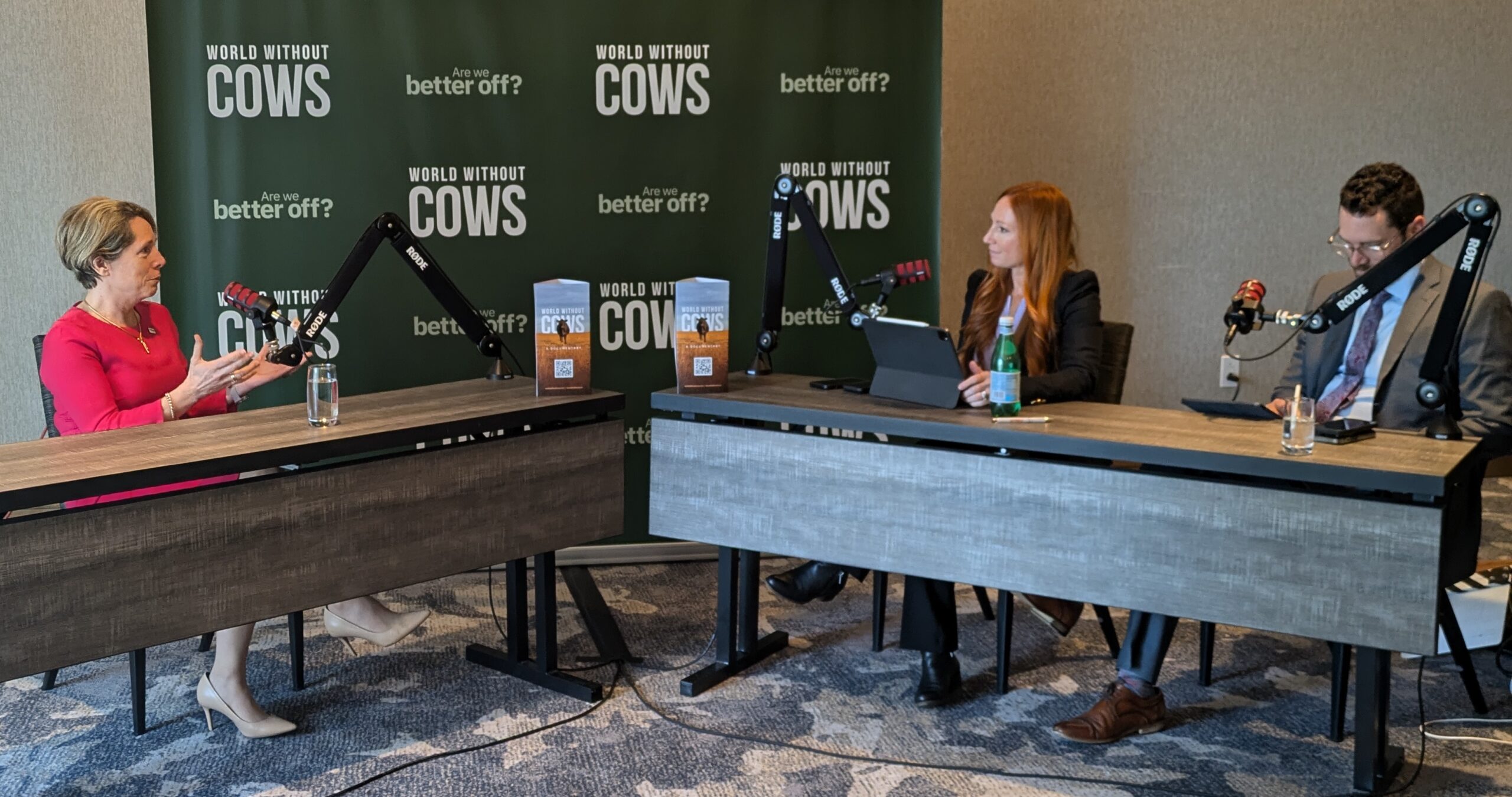
Tara points to one of the most common — and damaging — misconceptions about cattle producers: that they’re only in it for the money.
“Honestly, if it was about the money, nobody would be in this business at all,” she says. “This is probably the lowest-margin sector of them all. What are the KPIs here? It’s about legacy. It’s about leaving the land in a better state and passing it on to your family.”
Brandon agrees: “Time and again, what we saw in the field was passion — deep passion — for the work they do.”
The conversation turns to ESG — and how sustainability is often oversimplified.
“Do you think people just associate sustainability with the environment?” Michelle asks.
“Absolutely,” Tara says. “But the definition is about economic, nutritional and environmental sustainability. And too often, the environment is the loudest voice.”
She shares a reframing she recently encountered: ESG should actually be GSE — governance, social, environment.
“If the governance is strong — the structures, the values — and you take care of society, then the environment almost looks after itself,” Tara explains. “That means paying farmers fairly, supporting healthy diets, and doing good by people and the planet.”
But most importantly, she says, it all must start with the farmer:
“Too often it starts with the claim — ‘we want to say our food is lower-emissions’ — and then we push that burden back down the chain. Instead, we have to start with the producer and ask: How can we build a model where they win too?”
Read more: What is a sustainable diet? The United Nations describes a sustainable food system as one that achieves food and nutrition security today and helps contribute to food and nutrition security for future generations. Click here to check out our blog about sustainable diets.
Despite the challenges, Tara is hopeful. When asked whether she sees optimism in the industry, she shares insights from Alltech’s global survey of more than 22,000 stakeholders across the food chain.
“We asked farmers, retailers, investors: Is climate change going to make it harder to produce food? 78% said yes. And 85% said food security is going to become an issue,” she explains.
But there’s also good news:
“86% said they can see a path forward. And 93% said we’ll only get there by working together. That gives me hope.”
As the episode closes, Tara offers a metaphor that lingers long after the podcast ends:
“There’s a theory I have — it’s not fully proven, but it sticks with me: Chaos provides a ladder.”
Right now, she says, the food system is in flux — whether from regulation, climate or consumer pressure.
“Maybe we’re in the chaos phase now. But the ladder is in front of us — and we can choose to climb it. To rise above it.”
Asked how everyday people — not in agriculture — can get involved, Tara is clear: “It’s not that people aren’t involved in the conversation. It’s that they’re involved without being informed.”
She recalls Brandon and Michelle’s “man-on-the-street” interviews in Kentucky.
“Even in an agricultural state, only about half of people had a clue. And that’s the challenge — to give people the tools to be curious, to be informed.”
And that, she says, is the film’s greatest achievement:
“The genie is out of the bottle. Someone has kicked off the conversation. Now we can’t say it hasn’t been done.”

Why the global warming potential of methane emissions from cattle production needs a closer look
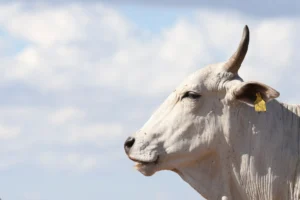
At COP30, the world’s eyes are on Brazil, and the cattle ranchers leading a global transformation.
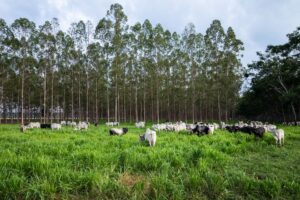
Restoring 40 million hectares of pasture could feed billions and ease pressure on the Amazon. Is the world paying attention?
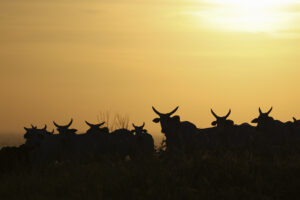
New mini-doc explores deforestation, food security and the Brazilian cattle sector’s path to a more sustainable future
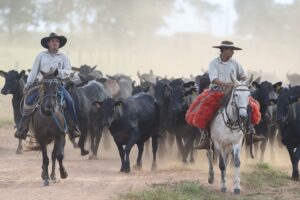
Mention Brazilian beef, and you’re likely to spark discussion about familiar themes: deforestation, emissions and blame. What do we find when we dig deeper? Here are the answers to five top questions about Brazil’s role in protecting the Amazon and feeding the world.
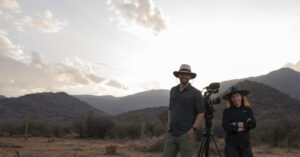
From science to the big screen: Discover how a single question grew into a global journey.
As climate change intensifies and the world’s population continues to grow, the pressure on our global food production system mounts. You can play an active role in shaping a more sustainable planet for future generations. Fill out the form below to learn more about how you can partner with us.
Receive notifications about the release date, new online content and how you can get involved